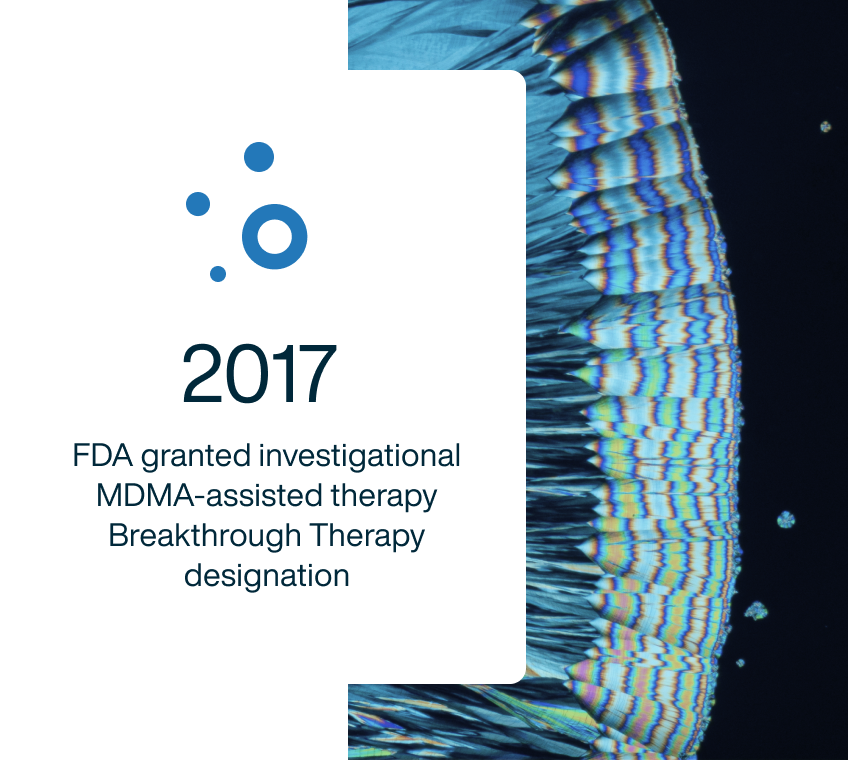1. Wagner MT, Mithoefer MC, Mithoefer AT, MacAulay RK, Jerome L, Yazar-Klosinski B, Doblin R. Therapeutic effect of increased openness: Investigating mechanism of action in MDMA-assisted psychotherapy. J Psychopharmacol. 2017 Aug;31(8):967-974. doi: 10.1177/0269881117711712
2. Nichols, David E. Entactogens: How the name for a novel class of psychoactive agents originated. Frontiers in Psychiatry. 2022 Mar 25;13:863088. doi:10.3389/fpsyt.2022.863088
3. Vollenweider, Franz X., Dialogues Clin Neurosci. 2001 Dec; 3(4): 265–279.doi: 10.31887/DCNS.2001.3.4/fxvollenweider
4. National Institute on Drug Abuse (NIDA) (nih.gov) What is the history of MDMA? Accessed, January 17, 2024. What is the history of MDMA? | National Institute on Drug Abuse (NIDA) (nih.gov)
5. Yazar-Klosinski B, Mithoefer MC. Potential psychiatric uses for MDMA. Clinical Pharmacology & Therapeutics. 2017 Feb;101(2):194-196. doi: 10.1002/cpt.565
6. Singleton SP et al. Altered brain activity and functional connectivity after MDMA-assisted therapy for post-traumatic stress disorder. Front Psychiatry. 2023 Jan 12;13:947622. doi: 10.3389/fpsyt.2022.947622
1970-1980s
MDMA was used in conjunction with talk therapy by mental health providers
MDMA: A brief history
MDMA (midomafetamine) is commonly known to mental health professionals. In the 1970s and early 1980s MDMA was used in conjunction with talk therapy by mental health providers to help enhance patients’ access, processing and communication of difficult emotions and experiences.1 MDMA is an entactogen—a class of psychoactive compounds that are differentiated from classic psychedelics (i.e., psilocybin, mescaline and LSD) and are defined based on their mechanism and known effects of increasing self-awareness, leading to introspection and personal reflection.2,3
